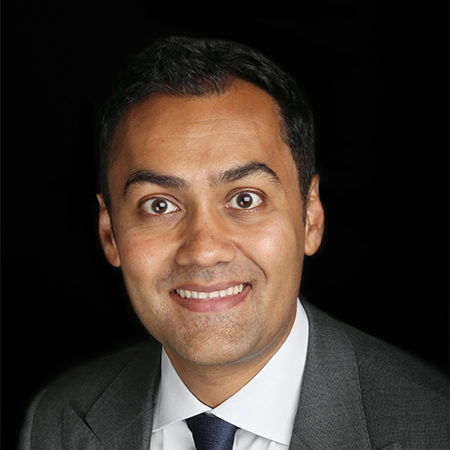While other industries have adopted digital tools to improve efficiency and user experience, our public healthcare system has been slow to embrace modernization. The barriers to health system modernization involve a lack of clear evidence on the efficiency, usability and clinical relevance of digital tools. Dr. Sacha Bhatia, F.M. Hill Chair in Health System Solutions, is studying appropriateness of care, digital health innovations and health service design to influence policy that will improve the delivery of care to patients.
Reducing inappropriate or low-value care across health disciplines has the potential to improve quality of care for millions of Canadians while simultaneously saving the health system necessary funds. Dr. Bhatia leads rigorous evaluation of digital health tools to establish an evidence base for policy makers and healthcare stakeholders to decide which innovations to adopt and how make them successful. Remote home care, electronic referral systems and other digital tools that connect patients to their care teams have the potential to improve efficiency and increase capacity to manage bed shortages and wait times within our current system. Caregivers for sick relatives would also benefit from digital technologies that improve health outcomes and patient experience, while reducing the burden of caregiving. Dr. Bhatia is leading research that moves these new models and policy approaches from theory to implementation, evaluation and spread and scale across Canada.
As a cardiologist, Dr. Bhatia is interested in improving the appropriate use of cardiac imaging and understanding the impact of low-value cardiac care on patient outcomes. In Canada, up to 30 per cent of medical tests are unnecessary, leading to longer wait times and costing our healthcare systems millions of dollars each year. He was the principal investigator of Echo WISELY (standing for “Will Inappropriate Scenarios for Echocardiography Lessen Significantly”) which was an international study that showed using Audit and Feedback along with educational tools significantly reduced the ordering of unnecessary echocardiograms, helping to reduce costs and improve care for patients. Studies like this will hopefully start a culture shift among physicians to reduce wait times and ensure patients receive the right care at the right time.
MBA, Health Care Administration, McGill University, 2003
MD, McGill University, 2003
- Ontario Clinician-Scientist Award, Heart and Stroke Foundation of Canada (2017)
- Arthur E. Weyman Young Investigator Award, American Society of Echocardiography (2013)
- Young Investigator Award, American College of Cardiology (2013)
- Cardiology
- Health system innovation
- Healthcare policy
